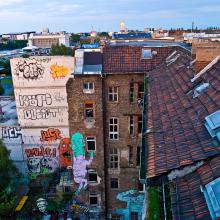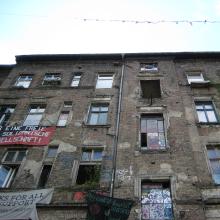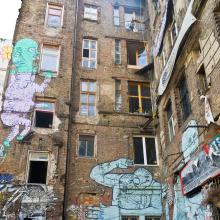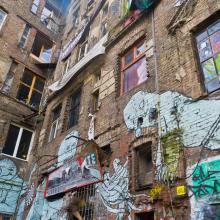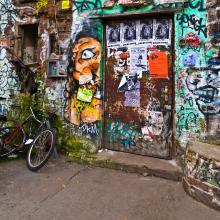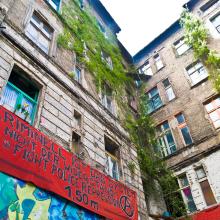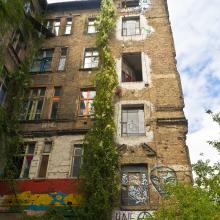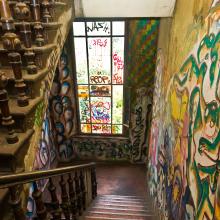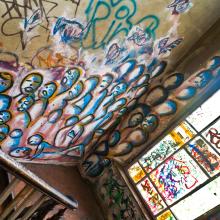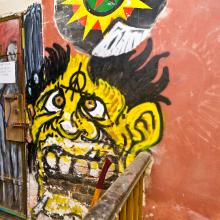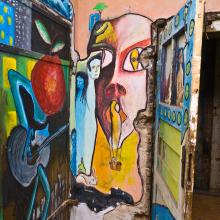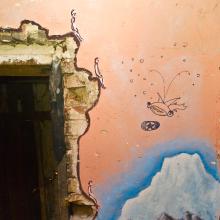Koepi
The Køpi is one of Berlin’s most legendary Hausprojekte, a radical and enduring site of alternative life in Berlin. It has enjoyed somewhat of a cult status as a center of alternative culture since its foundation, with an international reputation beyond Germany. The Køpi, self-described as a “living and cultural project” (Wohn- und Kulturprojekt), is home to about one hundred people—50 in the building, and 50 in an adjacent Wagenplatz (trailer park). In addition to the residences, the building includes non-commercial venues such as a bar, a free movie theater, and a printing workshop, among others.
The Køpi began when a group from West Berlin occupied the vacant, semi-destroyed building on Köpenickerstrasse 137, on February 23 1990, in what was then East Berlin, near the border with the western district of Kreuzberg. The squatters were attracted, among other things, by the many large rooms in the building, which was owned by the GDR government. It had been used as a sports facility during the GDR era, but by 1990 it had been vacated and was slated for demolition. It was the squatting and the creation of the Køpi that prevented its demolition. The most controversial thing about the Køpi at the time, according to members of the Køpi community itself, is that it was the first squat inhabited by West Berliners located in East Berlin.
In 1991, through an agreement with the administration of the Mitte district, the squat was legalized and the occupants were granted some security. This legalization notwithstanding, the tenure of the Køpi in its building would be challenged several times in the ensuing decades through forced auctions and landlords who wanted to redevelop the site. The community has remained, legally and paying rent, but like other Hausprojekte that depend on a private landlord, their status is often contested.
The Køpi commemorated its ten-year anniversary in 2000 with a documentary that is publicly available.
Most of the photographs in this page were taken by Berlin-based photographer Marcela Faé of the Fotostrasse photography project and travel blog, and are used here by permission. Faé stayed as a guest at the Køpi for a short period in 2009.
